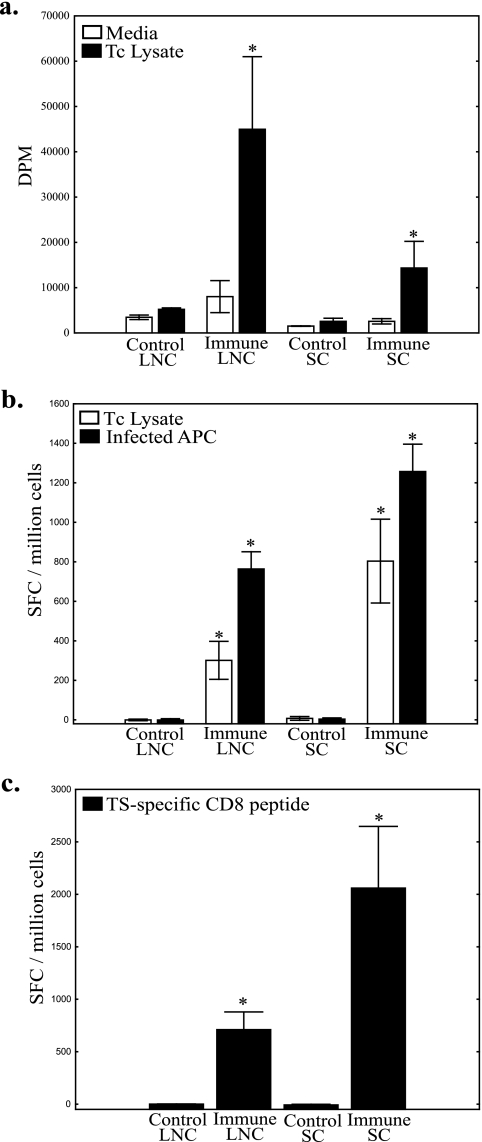FIG. 7.
Lymph node and spleen cells from immune mice proliferate and produce significant levels of IFN-γ in response to antigen. (a) Both lymph node cells and spleen cells from memory immune mice challenged 3 days previously display significantly increased lymphoproliferation in response to whole parasite lysate (*, P < 0.05 [Mann-Whitney U test]). (b) The same trend is seen in the IFN-γ ELISPOT assay. Increased numbers of memory-immune lymph node cells and spleen cells secrete IFN-γ when cocultured with whole parasite lysate (□) or A20J cells infected with T. cruzi (▪) (*, P < 0.03 [Mann-Whitney U test]). (c) Memory-immune lymph node and spleen cells incubated with a T. cruzi TS-specific CD8 epitope produced significantly increased numbers of IFN-γ-secreting cells (*, P < 0.05 [Mann-Whitney U test]). In all panels, vertical bars represent the standard errors of the means. SFC, spot-forming cells.

